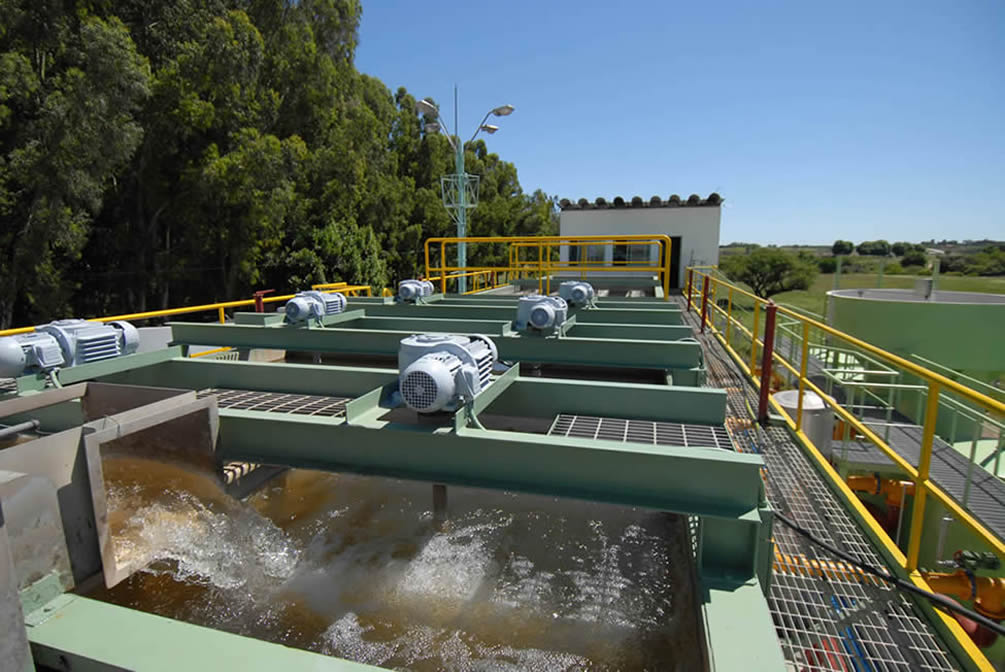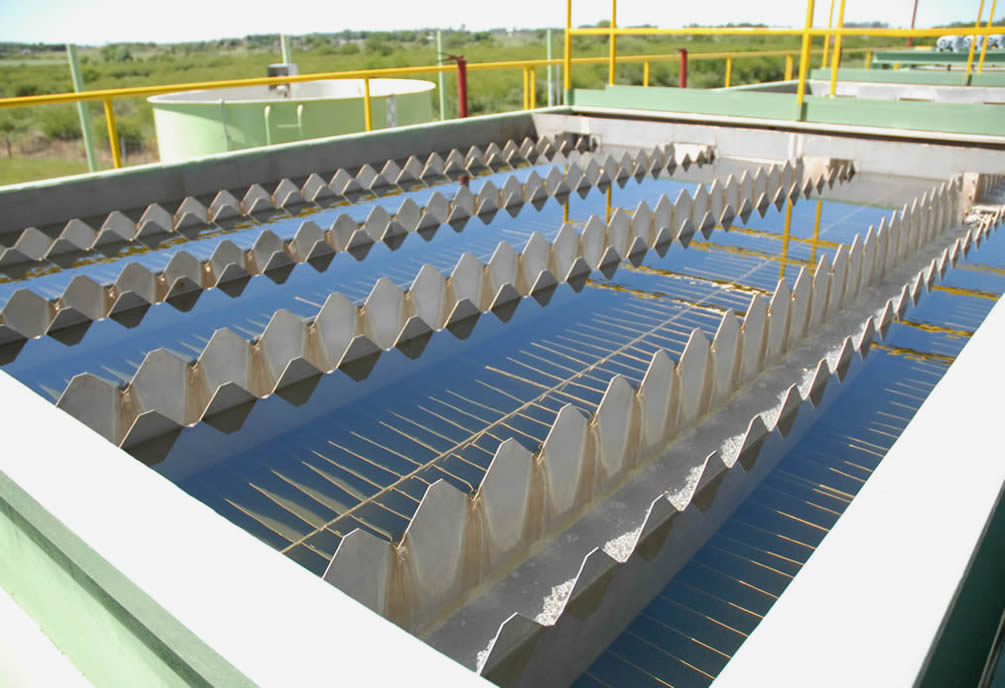UPA (English Version)
Agua | UPA
Compact and Transportable Water Treatment Plant (UPA)
(*) Protected by patent / utility model owned by OSE
Contact: upa@ose.com.uy

Product Definition
The Autonomous Potabilization Unit (UPA) is a transportable plant which includes all the traditional processes: coagulation; flocculation; clarification by sedimentation; filtration; disinfection.
Some applications:
• To reduce or eliminate in the medium and short term unsolved water demand problems in water supply systems with production deficits (quality and quantity).
• To execute in very short terms safe drinking water production projects and works programs for a country, region or group of villages.
• To improve drinking water quality in existing facilities, through appropriately mixing drinking water produced by a UPA and old treatment plants.
• To substitute old treatment facilities (sedimentation and flocculation basins, filters, etc.), to allow rehabilitation and reconstruction works, while UPA units continue to provide drinking water service.
• To increase total production capacity in Existing Treatment Plants where old facilities have been rehabilitated.
• To reuse old facilities: fixed assets- structures (buildings, civil works, concrete structures, hydraulic installations, etc.) in new engineering projects. During the upgrading process, old facilities can be stopped because of UPA units' permanent production support, saving engineering project and civil works investment resources.
•To increase safe drinking water production systems flexibility in water supply systems combined with different water sources (ground and surface water).
Different Models:


Download "UPA Brochure"
(*) Protected by patent / utility model owned by OSE
Contact: upa@ose.com.uy
The Oriental Republic of Uruguay has approximately three million inhabitants and the work OSE has performed allowed reaching 98% coverage of drinking water supply to the Uruguayan population.
OSE serves the Uruguayan population during the whole year, 24 hours a day, through 975.552 connections to an excellent quality drinking water distribution net.
Uruguay is the only country in the Americas that does not have any diseases transmitted by water and has stayed free from cholera epidemics.
This success is mostly a consequence of UPA units operation. At facilities where UPA units have been used, treated water volume has increased 53%.
This model of water-treatment plant, which is compact and transportable, has been developed by the technicians of the State Sanitary Works Administration (O.S.E.) and the Uruguayan Army.
Nowadays, there are 112 plants operating in Uruguay and over a hundred plants operating in Central America, South America, Asia and Africa.
To date, OSE has commercialized 133 units. Moreover, 10 units are being operated in United Nations Peacekeeping Missions and Uruguay has donated 17 units to countries which have faced emergency situations caused by natural disasters.
(*) Data updated to March 2015
OSE serves the Uruguayan population during the whole year, 24 hours a day, through 975.552 connections to an excellent quality drinking water distribution net.
Uruguay is the only country in the Americas that does not have any diseases transmitted by water and has stayed free from cholera epidemics.
This success is mostly a consequence of UPA units operation. At facilities where UPA units have been used, treated water volume has increased 53%.
This model of water-treatment plant, which is compact and transportable, has been developed by the technicians of the State Sanitary Works Administration (O.S.E.) and the Uruguayan Army.
Nowadays, there are 112 plants operating in Uruguay and over a hundred plants operating in Central America, South America, Asia and Africa.
To date, OSE has commercialized 133 units. Moreover, 10 units are being operated in United Nations Peacekeeping Missions and Uruguay has donated 17 units to countries which have faced emergency situations caused by natural disasters.
(*) Data updated to March 2015

Product Definition
The Autonomous Potabilization Unit (UPA) is a transportable plant which includes all the traditional processes: coagulation; flocculation; clarification by sedimentation; filtration; disinfection.
Some applications:
• To reduce or eliminate in the medium and short term unsolved water demand problems in water supply systems with production deficits (quality and quantity).
• To execute in very short terms safe drinking water production projects and works programs for a country, region or group of villages.
• To improve drinking water quality in existing facilities, through appropriately mixing drinking water produced by a UPA and old treatment plants.
• To substitute old treatment facilities (sedimentation and flocculation basins, filters, etc.), to allow rehabilitation and reconstruction works, while UPA units continue to provide drinking water service.
• To increase total production capacity in Existing Treatment Plants where old facilities have been rehabilitated.
• To reuse old facilities: fixed assets- structures (buildings, civil works, concrete structures, hydraulic installations, etc.) in new engineering projects. During the upgrading process, old facilities can be stopped because of UPA units' permanent production support, saving engineering project and civil works investment resources.
•To increase safe drinking water production systems flexibility in water supply systems combined with different water sources (ground and surface water).
Different Models:
| Type | Flow Rate (m3/h) | Weight (ton) | Dimension side | Width (m) | Lenght (m) | Height (m)) |
|---|---|---|---|---|---|---|
| UPA 200T | 20 | 6 | Outside | 1,74 | 6,24 | 2,51 |
| UPA 200FD | 40 | Inside | 1,50 | 6,00 | 2,50 | |
| UPA 1000T | 70 | 25 | Outside | 3,10 | 12,18 | 3,26 |
| UPA 1000FD | 120 | Inside | 2,75 | 11,76 | 3,00 | |
| UPA 2000T | 140 | 40 | Outside | 3,90 | 18,40 | 3,26 |
| UPA 2000FD | 250 | Inside | 3,50 | 18,00 | 3,00 |


Download "UPA Brochure"
